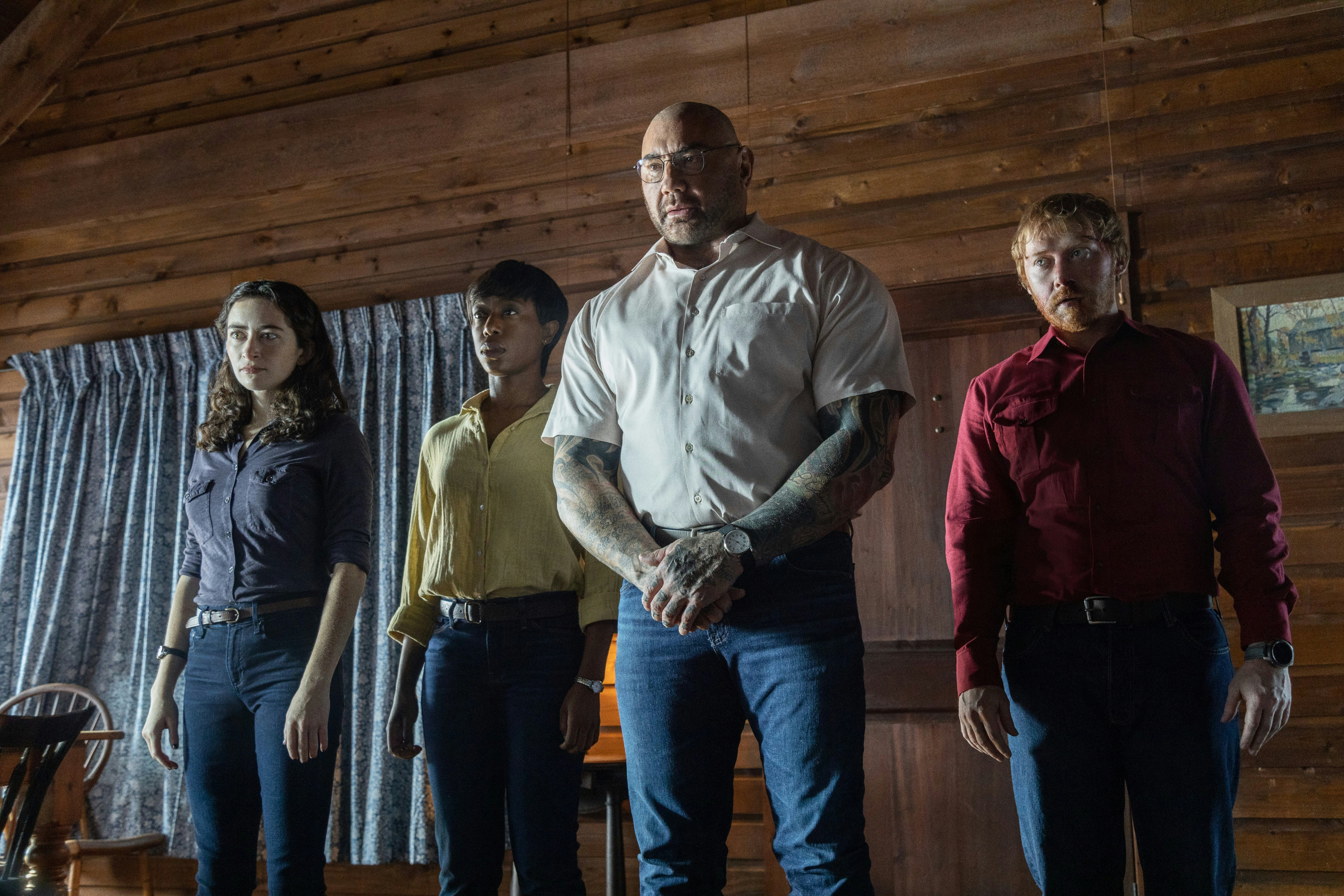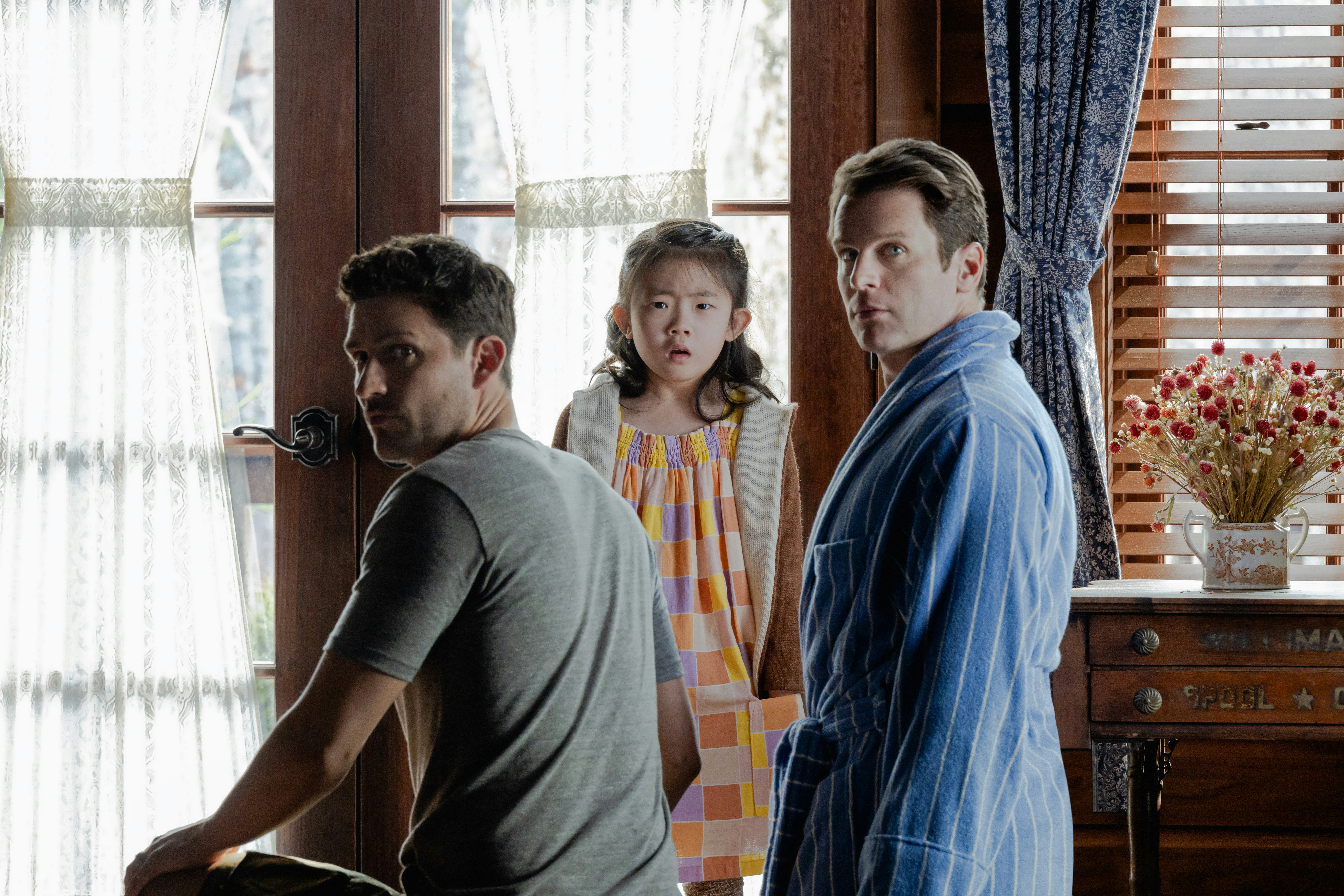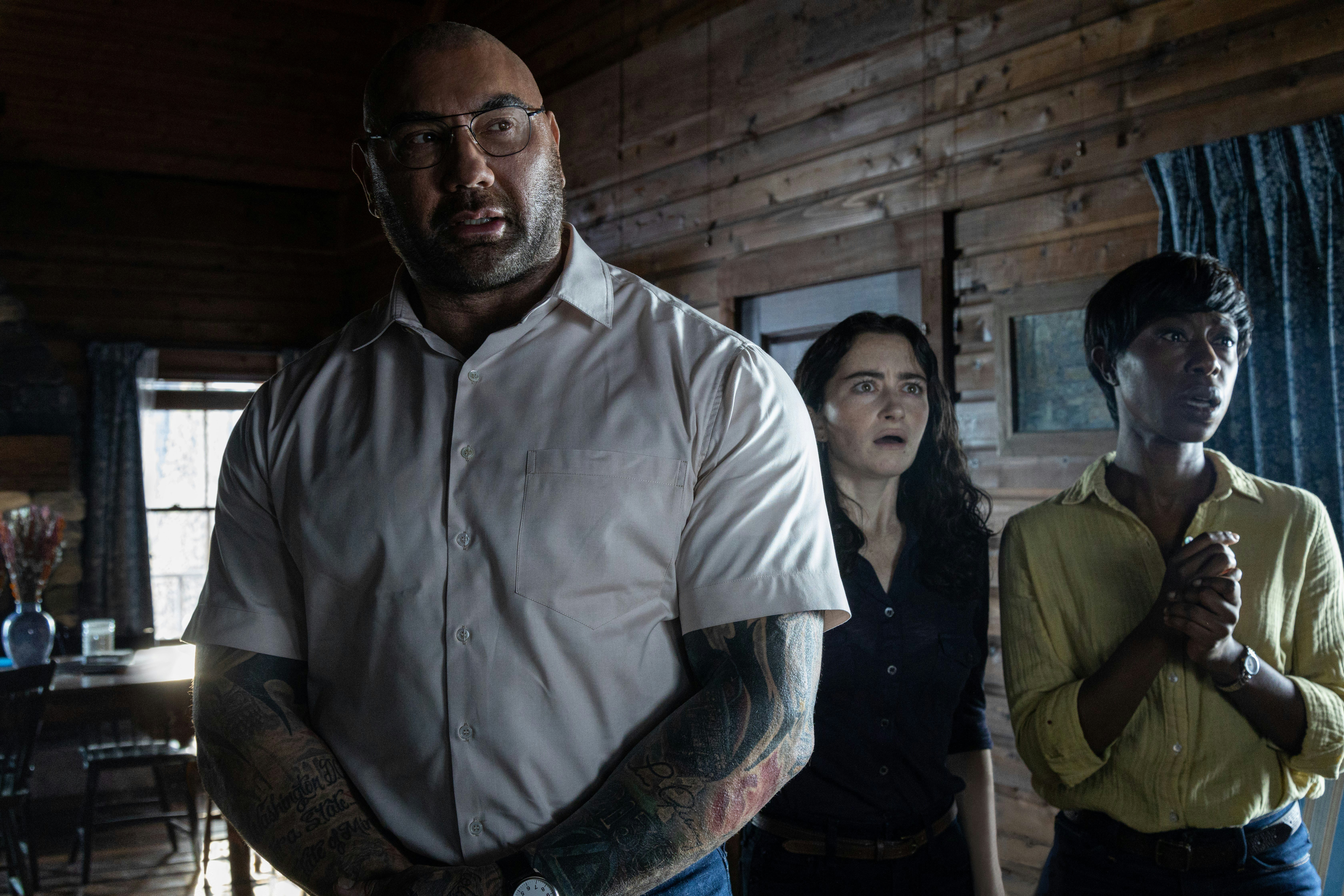
You shouldn’t open the door to strangers, but what if they’re trying to save the world?
Knock at the Cabin, M. Night Shyamalan’s adaptation of Paul Tremblay’s 2018 novel The Cabin at the End of the World, is now in theaters. A gripping home invasion thriller that’s mostly contained to a single space, Knock at the Cabin exhibits Shyamalan at his peak, with expressive camerawork that makes the most of limited physical surroundings.
While Knock at the Cabin doesn’t have Shyamalan’s trademark twists, it does keep up with the director’s tradition of ending on a puzzling resolution. Whether you’ve seen the movie and need answers, or you’re the type to read spoilers ahead of time, we break down the ending and what it all means.
Spoilers ahead.
What Happens in Knock at the Cabin?
In Knock at the Cabin, eight-year-old Wen (Kristen Cui) is spending the weekend with her two loving fathers, Eric (Jonathan Groff) and Andrew (Ben Aldridge), at a scenic riverside building of some sort when she’s approached by a large stranger, Leonard (Dave Bautista). Along with three others — played by Nikki Amuka-Bird, Abby Quinn, and Rupert Grint — the strangers break into the property and deliver Wen’s family a horrifying ultimatum.
The strangers claim to have a shared vision about the imminent end of the world. According to their visions, Wen’s family must willingly choose to sacrifice one of themselves to stop the apocalypse. These strangers are willing — and maybe even obligated — to kill themselves just to show Wen’s family how serious they are. Wen’s dads are obviously resistant at first, but their skepticism slowly erodes as disasters and diseases begin to claim millions of lives around the world.

Eventually, Leonard is the last of the invaders left alive. When he dies, Eric and Andrew have a serious conversation about what to do next. Eric says he saw a strange vision himself at the start of the invasion, and now fully believes in the end of the world and their power to stop it. He also adds that the four visitors were avatars for the Four Horseman of the Apocalypse, just for good measure.
Despite Andrew’s protests, Eric insists killing him is the right thing to do. He tells Andrew of a pleasant vision of the future: the world is still spinning, and an adult, seemingly successful Wen is embarking on a happy afternoon with an older Andrew. Reluctantly, Andrew shoots his husband. As Andrew retrieves Wen from a treehouse, the lightning storms that were brewing set some of the trees ablaze, and a tree topples onto the house.
Later, at a crowded diner, Andrew and Wen watch television to see that the strange disasters have abruptly ended. Knowing they had something to do with saving the world, Andrew and Wen get into Leonard’s car — which contains items that corroborate everyone’s stories about who they claimed to be — and the two drive away as Eric’s favorite song (“Boogie Shoes” by KC and the Sunshine Band) plays on the radio.

What does the end of Knock at the Cabin mean?
Without spoiling the book, Knock at the Cabin diverges from Tremblay’s novel regarding who lives, who dies, and if there’s even civilization left afterward. But Shyamalan’s movie shares a theme with The Cabin at the End of the World: the truth.
It’s reductive to say Knock at the Cabin is about how you should just trust strangers, but there’s a subversive quality to a home invasion thriller where the invaders hide nothing from their victims. The story also speaks to a collectivist view of the world, in that our actions do have an impact on those around us no matter how small and unimportant we think ourselves.
Ironically, Knock at the Cabin is less about the big picture — there are no real answers to the true nature of the visions — and more about people on an intimate scale. As the movie basically spells out, only love can save the world.
Knock at the Cabin is now playing in theaters.







